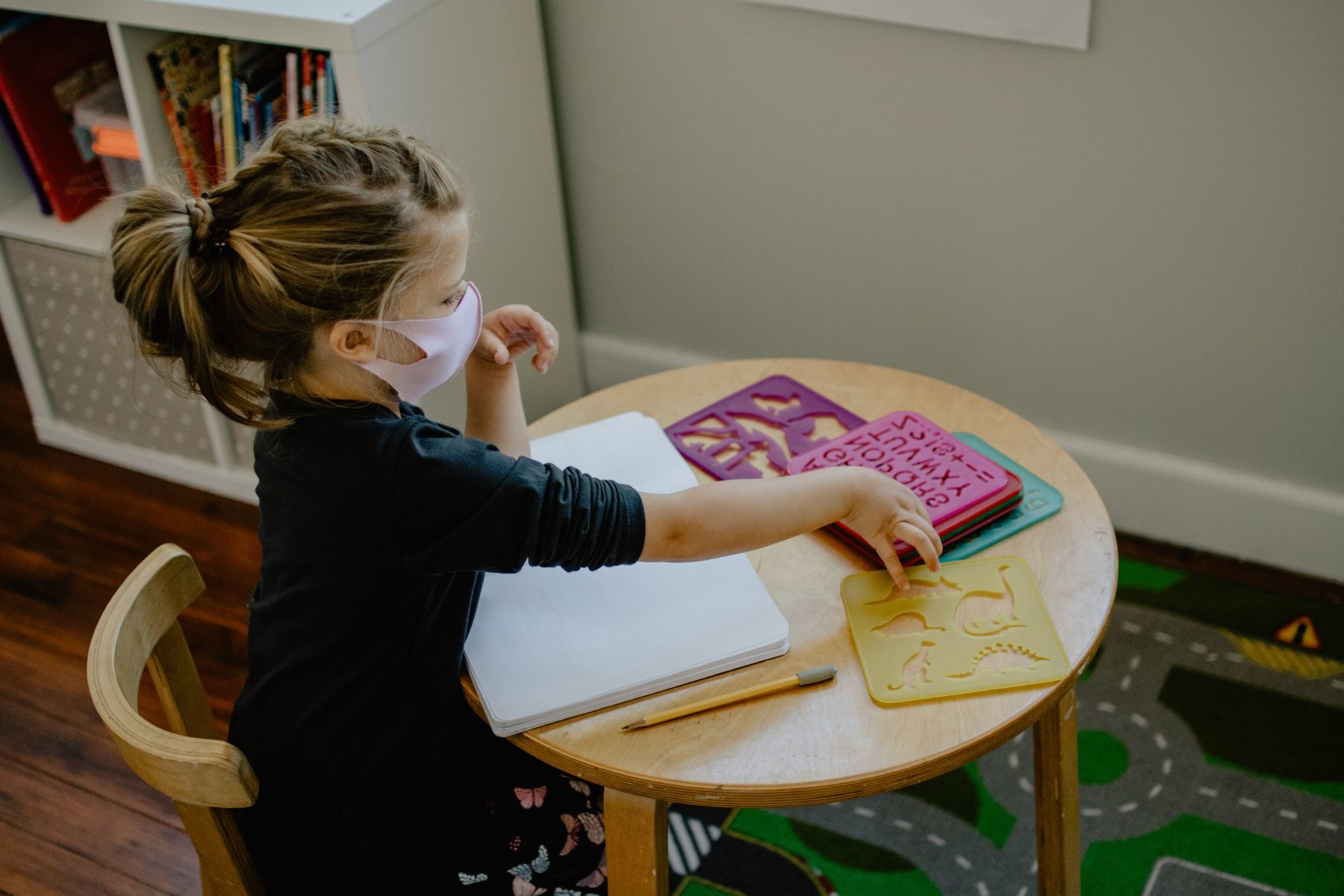Updated advice for ECEC services as Victoria embraces COVIDSafe Summer

The Victorian Department of Education has released an update providing clarification on face masks in education settings, the closure of the Victorian/New South Wales border, risk minimisation strategies and closure preparations as COVID-19 community presence continues in both Victoria and NSW.
Face masks
Educators in all education settings, including early childhood education and care (ECEC) services, are not required to wear face masks when teaching and caring for children.
However, staff are required to wear face masks when not working with children in shared common areas of the service (e.g. reception, staff rooms and foyers, or when providing first aid).
Parents and carers are required to wear face masks when inside the ECEC service. It is highly recommended that parents and carers wear face masks outside when physical distancing of 1.5 metres can’t be maintained, the Department said.
For Outside School Hours Care (OSHC), including vacation/school holiday programs, face masks are:
- not required for a student while on-site at a primary school or in OSHC
- not required for teachers, educators and staff when teaching and caring for children
- required for teachers, educators and staff when in shared common areas, such as reception and staff rooms.
Employers must display signage at each entry of the workplace advising that anyone entering the premises must wear a face mask, unless a lawful exemption applies.
Exceptions for not wearing a face mask are available at Face masks – when to wear a face mask.
Border closures
Victoria’s border for entry from NSW is now closed. Entry into Victoria from NSW is restricted, and only those with a permit or those with an exemption or exception (e.g. border community resident) can enter Victoria.
Any person living and working in a border community is exempt from obtaining and carrying a permit to enter Victoria, so long as they haven’t been to any other part of NSW. To cross the border, you will need your driver’s licence or another form of photo identification which shows your address. Children and families crossing the border from NSW to access early childhood services are not required to quarantine.
Any person who has returned to Victoria from NSW over the Christmas period may need to quarantine, depending on their situation. Services are encouraged to share this information with families and staff, and ensure children and staff who have visited NSW and returned to Victoria do not attend the service during any required quarantine period.
Risk mitigation strategies
ECEC services, the Department said, should continue to implement a variety of risk mitigation strategies to support physical distancing and good hygiene practices to reduce the risk of coronavirus (COVID-19) transmission.
The Department has developed a range of resources – which cover face masks, physical distancing, and hand hygiene – to help services communicate risk-mitigation strategies to families.
ECEC services are required to continue cleaning and disinfecting high-touch surfaces regularly, as this can help slow the spread of coronavirus (COVID-19).
To help slow the spread of coronavirus (COVID-19) in the community, unwell staff and children should stay at home and get tested immediately – no matter how mild their symptoms. A factsheet on managing illness in early childhood during the coronavirus (COVID-19) pandemic provides helpful information.
ECEC staff may be eligible for a $450 coronavirus (COVID-19) Test Isolation Payment, which provides workers with financial support while they self-isolate at home and wait for their coronavirus (COVID-19) test results. If they are then instructed by the Department of Health and Human Services (DHHS) to self-isolate or quarantine at home for a longer period of time, they may be eligible for a one-off $1500 coronavirus (COVID-19) Pandemic Leave Disaster Payment – Victoria.
The Department encouraged ECEC teachers, educators and staff to complete the eLearn module ‘School and early childhood infection prevention and control during coronavirus (COVID-19)’ which is available on FUSE.
The module provides facts, practical strategies and information about the precautions that can be taken to reduce risk while at work, including:
- modes of transmission of coronavirus (COVID-19)
- key risk factors
- standard infection prevention precautions
- how to protect yourself and others.
Completing this module “should acquit requirements under the Occupational Health and Safety (OHS) Act 2004 (Vic)” to provide employees with training to perform their work safely, the Department said.
Preparing for closure
While services are implementing risk mitigation strategies, they should be prepared to respond to the unlikely event of a confirmed case of coronavirus (COVID-19) within their service, the Department said.
Information is available on the process that services must follow if this occurs, and the steps which can be taken to prepare now. A communications pack with template letters and FAQs is also available.
The Department asked services to ensure that up-to-date emergency contact details are provided in the National Quality Agenda IT System (NQA ITS) to account for the potential need for DHHS to contact the service after hours.
Visitors and excursions
While there is no restriction on the number or type of visitors to ECEC premises, as long as a density limit of one person per two square metres is applied to staff common areas and areas accessed by the public, such as the foyer, physical distancing rules should be adhered to, along with face mask and hand hygiene requirements.
To support contact tracing, ECEC services must keep an electronic record of all visitors who attend on-site for more than 15 minutes.
When planning and conducting excursions, ECEC services need to consider and minimise risks associated with the potential transmission of coronavirus (COVID-19). Prior to an excursion, services should review the excursion venue’s COVIDSafe Plan and include strategies for minimising and managing any identified risks. Considerations should include:
- venue density limits
- wearing of masks, as appropriate, on public transport and rideshare vehicles (such as taxis) as well as in external venues
- adequate hand washing and drying facilities
- the cleaning and disinfection practices of the venue.
Music activities, including indoor group singing and wind instrument use, can continue with health and safety measures in place in line with DHHS advice.
For further information, please see the coronavirus (COVID-19) webpages for ECEC or contact the Department’s dedicated coronavirus (COVID-19) phone advice line during business hours (8.30am to 5pm) on 1800 338 663.
Popular

Workforce
Quality
Research
When did it start to go wrong?
2025-12-18 08:00:46
by Fiona Alston

Quality
Policy
Provider
Emergency Action Notices issued to three South Australian ECEC services over mobile device management concerns
2025-12-18 06:31:16
by Fiona Alston

Quality
Practice
Provider
Kool Kids Helensvale prepares children for summer storm season
2025-12-19 07:30:23
by Contributed Content
















